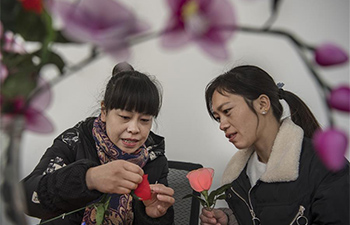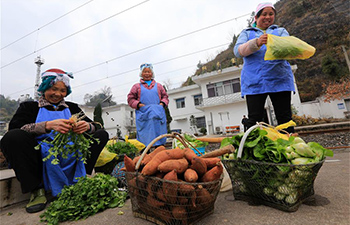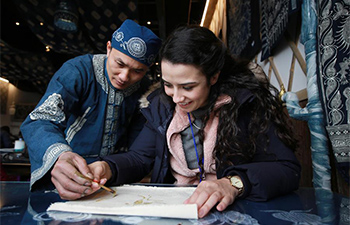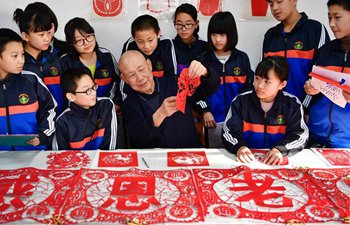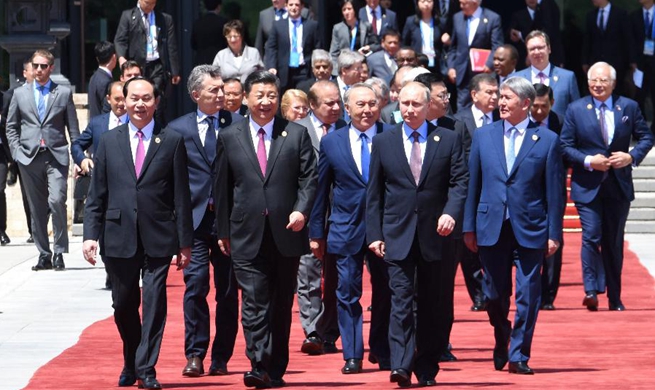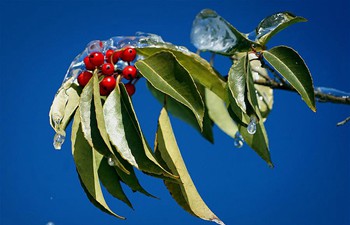LHASA, Jan. 12 (Xinhua) -- Tibetan opera director Sonam Chodron has kept expanding the repertoire of her troupe, from adapting the Italian opera "Turandot" to designing modern operas that chronicle the changes of time.
Her latest opera "The Tibetan Incense" opened this week in Lhasa, capital of Tibet Autonomous Region.
Tracing back to the 14th century, Tibetan opera is mainly derived from history, legend and Buddhist teachings. Artists like Sonam Chodron are dedicated to giving a modern touch to the traditional art form.
Sonam Chodron drew inspiration from the intensive anti-poverty campaign in the region and across the nation.
In the opera, two incense-makers are reluctant to share their family trade secrets in making Tibetan incense, despite a growing romance between their respective son and daughter. Both families suffer until a local official persuades them to share the technique among villagers amid a call for shared prosperity.
The fathers finally come around, and bless the marriage of their children.
"The most important principle is to respect the tradition and carry it forward. Then on this basis, I aim for new story lines and a new creation," she said.
The play lasts about two hours and was performed by the traditional Tibetan opera troupe in the region. The state-funded troupe, established in the 1960s, has around 120 members.
"The music, chants, songs, movement and the way of presentation are as close to traditional opera as possible," said Sonam Wangchug, who plays the son of one of the incense-makers.
"We act strictly according to the traditional Tibetan opera style so that the audiences can easily sink in with our performances," he said.
"I enjoyed it very much. There is strong drama in it, with suspension and clashes of emotions," said Pendron, one of the audience. "It is necessary to give new life to Tibetan traditional opera and bring it closer to the people."
Tibetan opera was awarded national intangible cultural heritage status in 2006 and was added to the UNESCO World Heritage List in 2009.
Since 2013, eight traditional Tibetan operas, including "Padma Obar," "Prince Norsang," "Droma Sangmo" and "Nangsa Obar," have been frequently brought to the stage.




